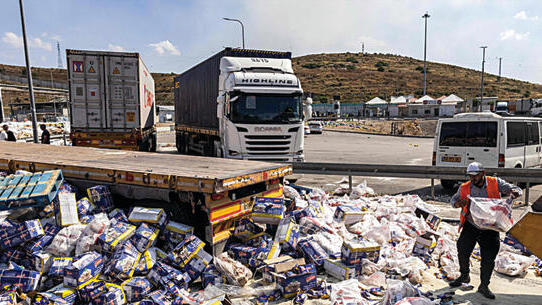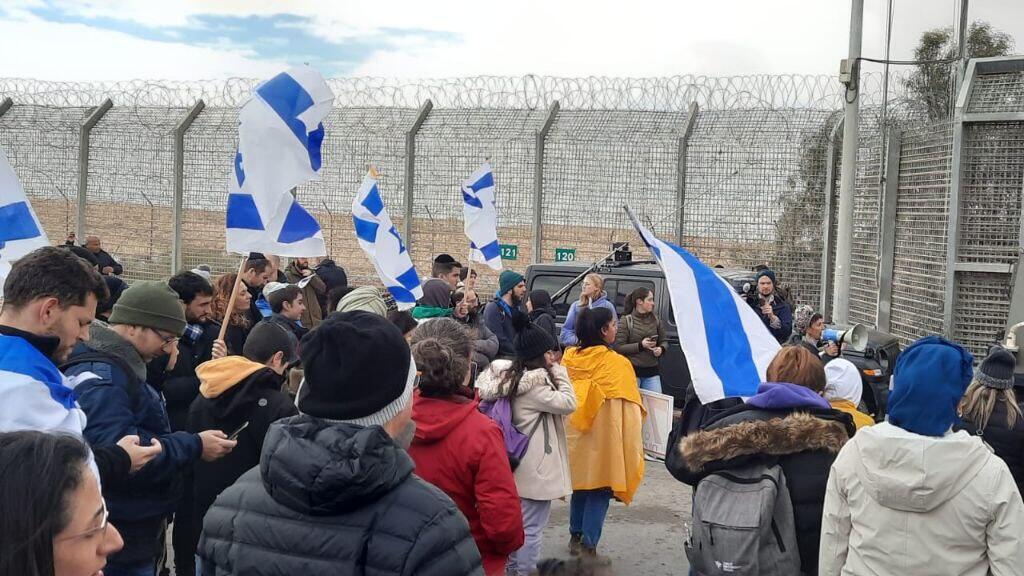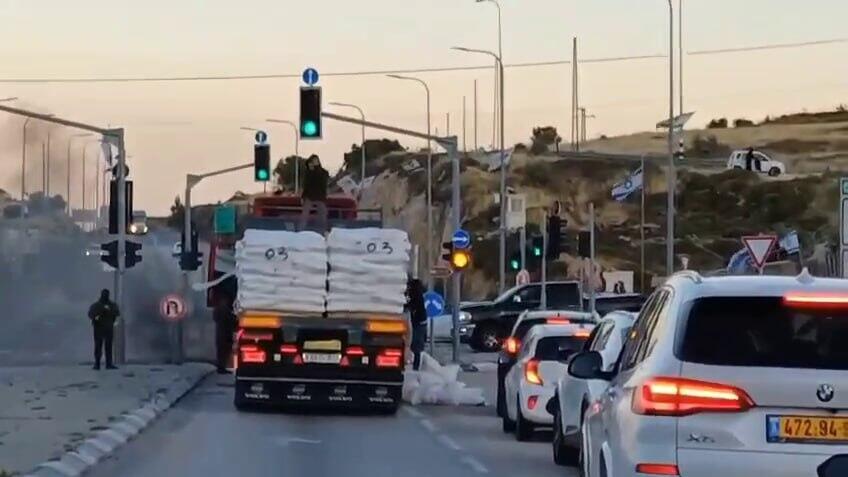Recent incidents of vandalism and arson targeting aid trucks heading for Gaza highlight the increasingly violent nature of protests that initially began by blocking humanitarian aid at various border crossings since the start of the war.
On Thursday, dozens of settlers attacked a truck driver in Binyamin, mistakenly believing he was transporting aid to Gaza. An IDF unit dispatched to the scene attempted to shield the driver and provide medical assistance, but the attackers responded violently, lightly injuring three soldiers.
The vandalism of aid trucks significantly harms Israel's international standing and could trigger diplomatic repercussions that might undermine the military’s war efforts in Gaza.
White House National Security Advisor Jake Sullivan said after the incident that: "It is a total outrage that there are people who are attacking and looting these convoys. We are looking at the tools that we have to respond to this.”
“We are also raising our concerns at the highest level of the Israeli government and it’s something that we make no bones about – this is completely and utterly unacceptable behavior,” he added.
The group associated with blocking the aid trucks is Tsav 9, which was recently established with the main aim of preventing aid from reaching Hamas while Israeli hostages are still held in the Strip. They began with small blockades but gradually gained momentum as they tapped into widespread public sentiment on the matter.
Tsav 9 focused their efforts on the Gaza crossings and achieved success due to the military and police’s lack of preparations for such incidents. In one instance, a reservist officer manning a crossing asked if anyone knew a Tsav 9 contact in order to notify them of incoming and passing trucks.
"This protest resonates with everyone, including soldiers providing information on the trucks' routes," a security official familiar with the details explained. However, there’s growing concern that the protests are becoming increasingly violent, leading Tsav 9 to suspend activities.
"Our guidelines are clear: only block the way," a Tsav 9 activist explained. "What happened near Hebron was simple – we received a tip about passing aid trucks, dispatched a nearby team to the scene, and established a blockade. Rumors spread, and dozens of youths arrived. The arson took place at night, long after our activity was over."
Security forces are struggling to manage the situation. "There is no coordination or updates between the different bodies on the issue of aid trucks. Sometimes the trucks take different routes and at varying times, and no one informs the police," a law enforcement official explained.
Another security source added: "Beyond the ethical issue, it often feels like anything is permitted right now. It peaked last week when extremists attacked a truck driver transporting goods and then assaulted the officers and soldiers who arrived there.
“Such extremist outbursts continue because it's not a priority for those responsible for addressing it. The attacks on the trucks have caused and continue to cause enormous damage to Israel, and especially to the settlements. We’re a democratic state; there are proper ways to demonstrate and protest," he said.






